This article explores whether using premium gasoline in a Honda Accord is beneficial, necessary, or simply a waste of money. We will cover various aspects of fuel types, engine performance, and manufacturer recommendations.
What is Premium Gasoline?
Premium gasoline is defined by its higher octane rating, typically around 91 to 93, compared to regular gasoline, which usually has an octane rating of 87. The higher octane level is designed to prevent engine knocking and improve performance in high-compression engines. Many luxury and performance vehicles recommend or require premium fuel to operate efficiently.
Why Do Some Cars Require Premium Gas?
Certain vehicles, especially those with high-performance engines, require premium gas to avoid knocking and ensure optimal performance. Engines designed for high compression ratios benefit from the increased resistance to knocking that premium gasoline provides, allowing for better acceleration and overall performance.
Does My Honda Accord Need Premium Gas?
Most Honda Accords are engineered to run efficiently on regular unleaded gasoline. According to Honda’s manufacturer guidelines, using regular fuel is sufficient for most models and trims. However, some drivers may wonder if using premium gas could enhance their vehicle’s performance.
What Happens If You Use Premium Gas in a Honda Accord?
Using premium gas in a Honda Accord may not yield significant performance improvements. While the higher octane fuel can provide some benefits, such as potentially smoother engine operation, the difference is often negligible for vehicles designed for regular fuel. Drivers may not notice any substantial change in acceleration or fuel efficiency.
Benefits of Using Premium Gas in My Honda Accord
- Smoother Operation: Some drivers report that their engines run more smoothly on premium fuel.
- Potential for Better Fuel Efficiency: In certain conditions, premium gas may offer slight improvements in fuel economy.
- Enhanced Engine Cleaning: Premium fuels often contain more detergents, which can aid in keeping the engine clean.
Are There Any Downsides to Using Premium Gas?
While premium gas can offer some benefits, it also comes with drawbacks. The most significant downside is the cost; premium gasoline typically costs more per gallon than regular gasoline. For drivers of Honda Accords, this increased expense may not justify the minimal benefits gained from using higher octane fuel.
How Does Octane Rating Affect Engine Performance?
The octane rating of fuel affects how well it can withstand compression in the engine. Higher octane fuels are more resistant to knocking, which can lead to better performance in engines designed for such fuel. However, for vehicles like the Honda Accord, which are optimized for regular fuel, the benefits of using premium gas may not be realized.
What Do Honda Owners Say About Using Premium Gas?
Owner experiences vary, with some Honda Accord drivers swearing by premium gas for improved performance, while others find no noticeable difference. Many owners report that sticking to regular unleaded gasoline meets their driving needs without any issues.
Manufacturer Recommendations for Fuel Types
Honda recommends regular unleaded gasoline for most Accord models, as stated in the owner’s manual. It’s essential for owners to adhere to these guidelines to maintain engine health and performance while avoiding unnecessary expenses.
Can Using Premium Gas Improve Fuel Economy?
Studies on fuel economy suggest that while premium gas can sometimes lead to better mileage, the differences are often minimal. For Honda Accord drivers, the potential gains may not outweigh the additional costs of purchasing premium fuel.
When Should You Consider Switching to Premium Gas?
Switching to premium gasoline may be beneficial in specific scenarios, such as frequent towing or driving in hilly terrain, where engine performance is crucial. However, for everyday driving, regular fuel is typically sufficient.
Final Thoughts on Fuel Choices for Honda Accord
Choosing the right fuel for your Honda Accord can be confusing. While premium gasoline may offer some advantages for certain drivers, for most Accord owners, regular unleaded gasoline is the best choice for performance and cost-effectiveness.
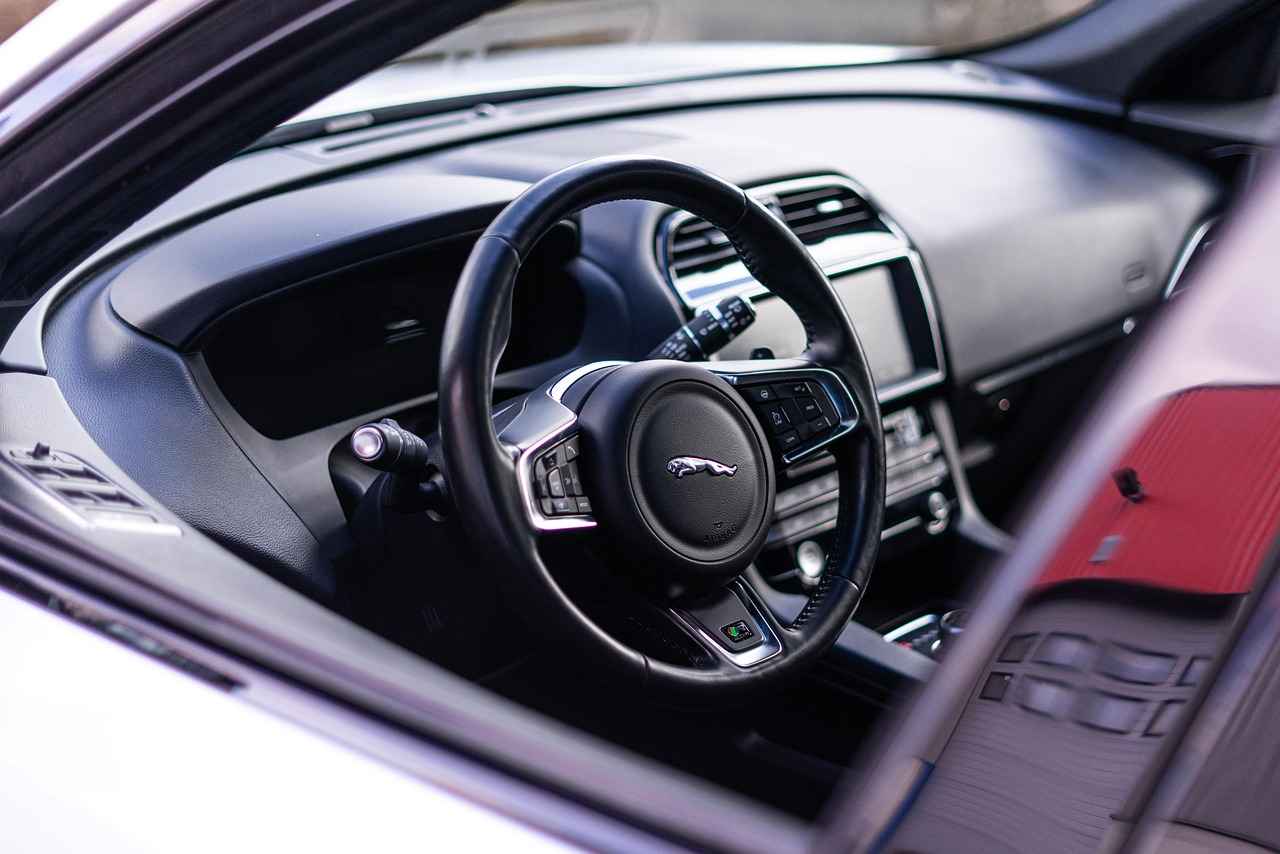
What is Premium Gasoline?
Premium gasoline is often perceived as a superior fuel option, primarily due to its higher octane rating compared to regular gasoline. The octane rating is a measure of a fuel’s ability to resist knocking or pinging during combustion, which can be detrimental to engine performance. In this section, we will delve deeper into the definition, composition, and intended uses of premium gasoline.
Typically, premium gasoline has an octane rating of 91 to 93, while regular gasoline usually ranges from 87 to 89. The higher octane level in premium fuel allows for more efficient combustion in engines designed to take advantage of this property. This is particularly important for high-performance vehicles and those with turbocharged engines, where precise fuel combustion is crucial for maximizing power output.
In terms of composition, premium gasoline may contain a blend of hydrocarbons, additives, and detergents that help maintain engine cleanliness and efficiency. These additives can include cleaning agents that minimize deposits on fuel injectors and valves, thus enhancing overall engine performance and longevity. While both premium and regular fuels share similar base components, the specific formulations can vary significantly based on the brand and region.
| Fuel Type | Octane Rating | Typical Uses |
|---|---|---|
| Regular Gasoline | 87-89 | Standard vehicles, everyday driving |
| Premium Gasoline | 91-93 | High-performance and luxury vehicles |
Many vehicle manufacturers recommend premium gasoline for specific models, especially those equipped with high-compression engines. This recommendation is based on the need to prevent engine knocking, which can occur when the fuel-air mixture ignites prematurely. In such cases, using premium gasoline can help maintain optimal engine performance and efficiency.
However, it is essential to note that not all vehicles require premium fuel. For many standard cars, including most Honda Accord models, regular gasoline is sufficient for optimal performance. Owners should always consult their vehicle’s owner manual for the manufacturer’s fuel recommendations.
In summary, premium gasoline offers benefits such as higher octane ratings and potential enhancements in engine performance, particularly for vehicles designed to utilize it. Understanding the differences between fuel types can help drivers make informed decisions about their fuel purchases.

Why Do Some Cars Require Premium Gas?
When it comes to fueling vehicles, many car owners often wonder about the differences between regular and premium gasoline. This question is particularly relevant for drivers of high-performance vehicles, which are engineered to operate optimally with higher octane fuel. In this section, we will delve into the reasons manufacturers recommend premium fuel for specific engine types.
Understanding Octane Ratings
Octane ratings are a measure of a fuel’s ability to resist knocking during combustion. Knocking occurs when fuel ignites prematurely in the engine, leading to inefficient performance and potential damage. Premium gasoline typically has an octane rating of 91 or higher, compared to regular gasoline, which usually has a rating of 87. Higher octane fuels are formulated to withstand greater compression before igniting, making them ideal for high-performance engines.
Engine Design and Performance
Many high-performance vehicles are equipped with engines that have higher compression ratios. This design allows for more power and efficiency but also increases the likelihood of knocking if lower-octane fuel is used. Manufacturers often recommend premium gasoline for these vehicles to ensure that the engine operates smoothly and efficiently. For example, sports cars and luxury vehicles may utilize turbocharged or supercharged engines that demand premium fuel to achieve their full potential.
Benefits of Premium Gasoline
- Improved Performance: Using premium gas can enhance throttle response and acceleration.
- Fuel Efficiency: Some drivers report better mileage when using higher octane fuel, although this can vary by vehicle.
- Engine Longevity: Premium fuel may help maintain engine health by reducing deposits and keeping components cleaner.
Manufacturer Recommendations
Automakers conduct extensive testing to determine the optimal fuel for their vehicles. For instance, if a manufacturer specifies premium gasoline, it is often due to the engine’s design and performance requirements. Ignoring these recommendations can lead to reduced performance and potential long-term damage to the engine.
Conclusion
In summary, certain cars require premium gas due to their engine design and performance capabilities. While many vehicles can run on regular gasoline without issues, high-performance models are built to take advantage of the benefits that premium fuel offers. By understanding the implications of fuel choice, drivers can make informed decisions that align with their vehicle’s needs.
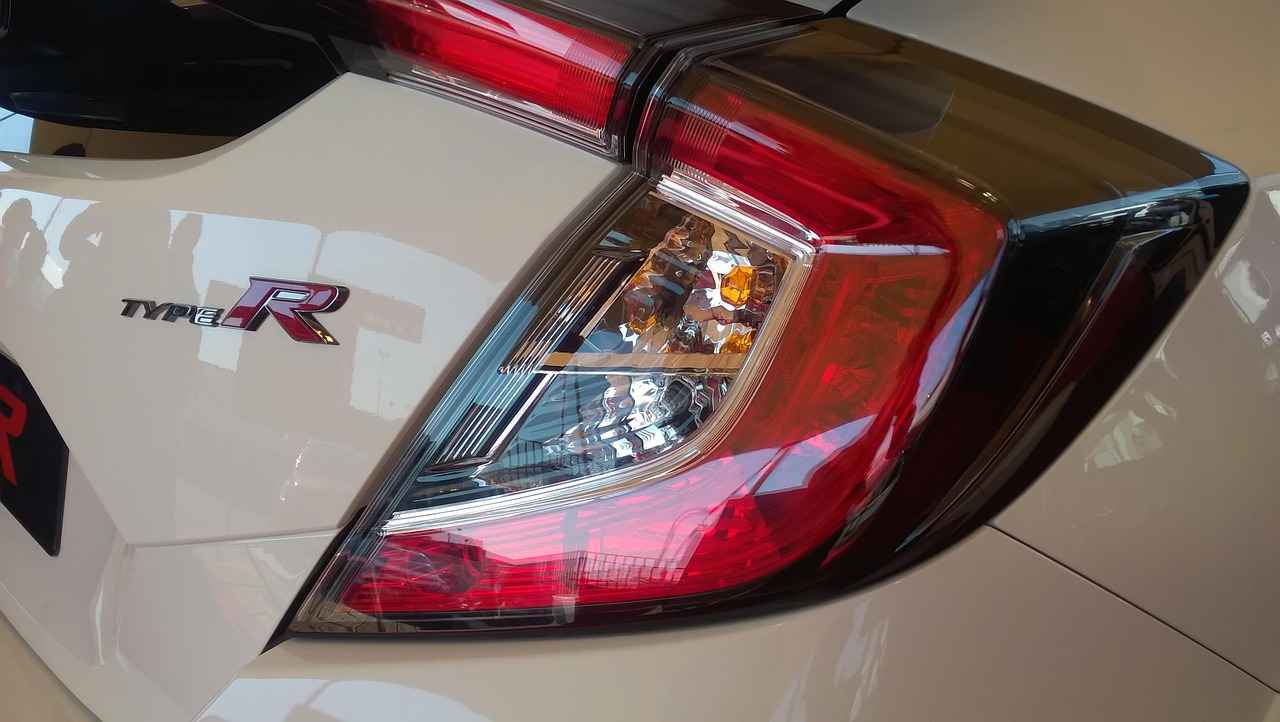
Does My Honda Accord Need Premium Gas?
When it comes to fueling your Honda Accord, many owners often wonder, “Does my Honda Accord need premium gas?” This question is crucial for ensuring optimal performance and efficiency. Understanding the fuel requirements for various Honda Accord models can help you make an informed decision.
Most Honda Accords are designed to run efficiently on regular unleaded gasoline. This means that for the majority of models, using regular gas is not only acceptable but recommended. Regular unleaded typically has an octane rating of 87, which is sufficient for the engine’s compression ratio and performance specifications.
Honda’s Fuel Recommendations
Honda provides specific fuel guidelines for each model year and trim. Generally, the Honda Accord does not require premium gasoline, which usually has an octane rating of 91 or higher. However, certain trims with turbocharged engines may benefit from higher octane fuel to maximize performance. Always refer to the owner’s manual for the most accurate information regarding your specific model.
Benefits of Using Regular Gas
- Cost-Effective: Regular gas is significantly cheaper than premium gas, which can lead to substantial savings over time.
- Engine Compatibility: The majority of Honda Accord engines are optimized for regular gasoline, ensuring smooth operation and longevity.
- Fuel Efficiency: Using the recommended fuel type can help maintain the vehicle’s fuel efficiency, as designed by the manufacturer.
What About Premium Gas?
While using premium gas in a Honda Accord may not be necessary, some drivers believe it can enhance engine performance or fuel efficiency. However, studies indicate that the benefits of using premium gas in a vehicle designed for regular gas are often minimal. For most drivers, the extra cost of premium fuel does not translate into noticeable performance gains.
Potential Downsides to Premium Gas
- Higher Costs: The price difference between regular and premium gas can add up, impacting your overall fuel expenses.
- No Significant Performance Boost: For many Honda Accord models, using premium gas does not lead to improved acceleration or efficiency.
- Engine Adaptation: Some modern engines are designed to adapt to different fuel types, meaning that using premium may not yield any advantages.
When to Consider Premium Gas
If you own a high-performance or turbocharged model of the Honda Accord, there may be scenarios where premium gas could be beneficial. For example, if you frequently drive in extreme conditions or require maximum power for towing, premium fuel might help prevent engine knocking and maintain performance. However, for everyday driving, regular gas is typically sufficient.
In summary, while most Honda Accords are designed to run on regular unleaded gasoline, understanding your specific model’s requirements is essential. Always consult your owner’s manual and consider your driving habits when deciding on the fuel type. By making informed choices, you can ensure that your Honda Accord runs smoothly and efficiently without unnecessary expenses.

What Happens If You Use Premium Gas in a Honda Accord?
When considering the use of premium gasoline in a Honda Accord, many drivers wonder about the implications of this choice. While premium gas is often marketed as a superior fuel option, the actual benefits for a vehicle designed for regular unleaded gasoline may be limited.
Honda Accords are engineered to perform optimally with 87-octane fuel. This means that the engines are calibrated to run efficiently on regular gas without compromising performance. Using premium gas, which typically has an octane rating of 91 or higher, may not yield noticeable improvements in everyday driving conditions. However, let’s delve deeper into the potential effects of using higher octane fuel.
Octane ratings measure a fuel’s ability to resist knocking during combustion. In high-performance vehicles, a higher octane fuel is often required to prevent engine knocking, which can cause damage over time. However, the Honda Accord’s engine is designed to operate effectively on regular fuel, meaning that using premium gas may not significantly enhance performance.
Some drivers report that using premium gas can lead to a smoother driving experience or slightly improved acceleration. This perception may stem from the higher octane’s ability to burn more cleanly in certain conditions, potentially reducing engine noise and vibrations. However, these benefits are often marginal and may not justify the increased cost of premium fuel.
One of the most significant factors to consider is the cost difference. Premium gasoline typically costs significantly more than regular gas. For drivers who primarily use their Honda Accord for commuting or routine errands, the additional expense may not be worth it. Over time, the extra dollars spent on premium gas could add up to a substantial amount without providing a corresponding increase in performance or efficiency.
Automotive experts generally agree that unless a vehicle specifically requires premium fuel, using regular gasoline is sufficient. Honda’s own guidelines emphasize that their vehicles, including the Accord, are designed to run on 87-octane gasoline. Therefore, drivers should feel confident in using regular fuel without fear of damaging their engine or sacrificing performance.
Many Honda Accord owners have shared their experiences regarding the use of premium gas. Some report minimal differences in performance, while others notice no change at all. It is essential to consider these testimonials as anecdotal evidence rather than definitive proof of premium gas’s benefits.
In summary, while using premium gasoline in a Honda Accord may not cause harm, it is unlikely to provide significant advantages. The vehicle’s design and engineering prioritize efficiency with regular fuel. Therefore, for most drivers, sticking with 87-octane gasoline is the most practical and cost-effective choice.
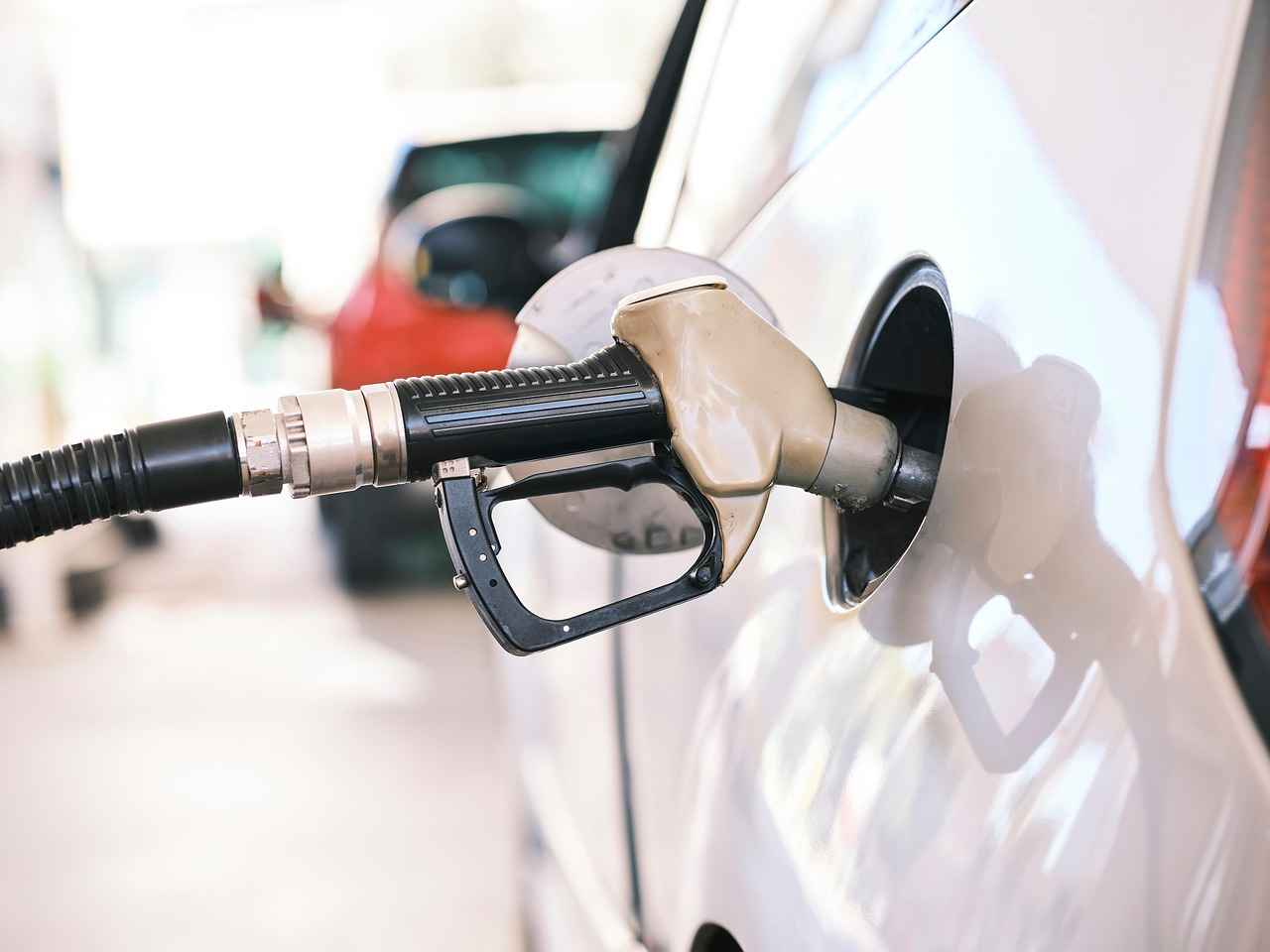
Benefits of Using Premium Gas in My Honda Accord
When it comes to fueling your Honda Accord, the question of whether to use premium gasoline often arises. While premium gas is not a necessity for most Honda Accord models, many drivers believe it can offer certain advantages. This section will delve into the potential improvements in engine performance, fuel efficiency, and the overall driving experience that may come with using premium gasoline.
- Enhanced Engine Performance: One of the primary reasons some drivers opt for premium gas is the belief that it can enhance engine performance. Premium gasoline typically has a higher octane rating, which can prevent knocking in engines that are designed to take advantage of it. While most Honda Accords are made to run on regular gas, some drivers report smoother acceleration and improved throttle response when using premium fuel.
- Improved Fuel Efficiency: Another claimed benefit of premium gas is improved fuel efficiency. Some studies suggest that vehicles designed for higher octane fuel can achieve better mileage when using premium gasoline. Although the Honda Accord is optimized for regular unleaded gas, a few drivers have noted slight improvements in miles per gallon when they switched to premium, especially under heavy acceleration or when carrying heavy loads.
- Cleaner Engine Components: Premium gasoline often contains more detergents and additives than regular fuel. These additives can help keep your engine cleaner over time, potentially reducing carbon buildup in the engine and fuel injectors. A cleaner engine can lead to better performance and longevity, which may appeal to Honda Accord owners looking to maintain their vehicle’s health.
- Better Cold Weather Performance: In colder climates, premium gasoline can sometimes perform better than regular gas. It may ignite more easily and help prevent issues related to cold starts. For Honda Accord drivers living in regions with harsh winters, this could be a practical benefit worth considering.
- Potential Resale Value: Some drivers believe that using premium gas can help maintain their vehicle’s resale value. While there is limited evidence to support this claim, keeping your engine in top condition with high-quality fuel may appeal to future buyers.
Despite these potential benefits, it is essential to weigh them against the higher cost of premium gasoline. For most Honda Accord models, the manufacturer recommends regular unleaded fuel, and using premium gas may not provide significant advantages in day-to-day driving. Ultimately, the choice to use premium gas should be based on individual driving habits, preferences, and any specific performance needs.
In conclusion, while premium gasoline can offer some benefits such as enhanced performance and improved fuel efficiency, it is crucial for Honda Accord owners to consider their vehicle’s specifications and their personal driving styles. Understanding these factors will help you make an informed decision about whether switching to premium gas is the right choice for you.

Are There Any Downsides to Using Premium Gas?
When considering fuel options for your vehicle, many drivers ponder the question: While premium gasoline is often marketed as a superior choice, it is essential to evaluate both the advantages and disadvantages before making a decision. This article will delve into the potential drawbacks of using premium gas, particularly focusing on financial implications and the real benefits it offers.
One of the most significant downsides of using premium gas is the higher cost associated with it. Premium gasoline typically costs between 20 to 40 cents more per gallon than regular unleaded. For drivers who fill up frequently, this can lead to a substantial increase in fuel expenses over time. For example, if a driver fills their tank once a week, the added cost could amount to over $200 annually.
Many drivers wonder if the benefits of premium gas justify the extra expense. While some manufacturers recommend premium fuel for specific models, most Honda Accords are designed to operate efficiently on regular unleaded gasoline. In fact, using premium gas in a vehicle that does not require it may not yield any noticeable performance improvements. This raises the question: Is it worth spending more on premium gas if your vehicle doesn’t need it?
Another consideration is whether premium gas actually enhances engine performance. While higher octane fuels can prevent knocking in high-performance engines, most Honda Accords do not have engines that require such fuel. Therefore, the use of premium gas may not significantly impact performance or fuel efficiency for the average driver. In fact, some studies suggest that using premium fuel in vehicles designed for regular gasoline can lead to no measurable performance gains.
Using premium gas can also have environmental implications. The production of premium gasoline requires more refining, which can result in a higher carbon footprint compared to regular gas. For environmentally-conscious drivers, this is an important factor to consider when choosing fuel types.
Many Honda Accord owners report mixed experiences with premium gas. Some believe they notice slight improvements in engine smoothness or acceleration, while others find no difference at all. This variability in personal experience highlights the importance of individual driving habits and vehicle conditions. Testimonials from Honda owners can provide valuable insights, revealing that many drivers are satisfied with regular unleaded fuel, negating the need for premium options.
In summary, while premium gas may offer some benefits for specific vehicles, the drawbacks are significant for Honda Accord owners. The higher costs, minimal performance improvements, and potential environmental impact make it essential for drivers to evaluate their fuel choices carefully. Ultimately, understanding your vehicle’s needs and manufacturer recommendations is crucial in making an informed decision about fuel type.

How Does Octane Rating Affect Engine Performance?
Understanding octane ratings is crucial for making informed fuel choices. This section will explain octane ratings and how they affect engine performance, particularly in relation to compression ratios.
Octane ratings serve as a measure of a fuel’s ability to resist knocking or pinging during combustion, which can significantly impact engine performance. The higher the octane rating, the more compression the fuel can withstand before igniting. This is particularly important for high-performance engines that operate at higher compression ratios. For instance, fuels with an octane rating of 87 are typically suitable for most standard vehicles, while premium fuels, which often have octane ratings of 91 or higher, are recommended for vehicles designed to perform at their best under increased pressure.
In general, the octane rating is determined through standardized testing methods, where fuels are compared to a mixture of iso-octane and heptane, which represent the extremes of fuel performance. The resulting number reflects the fuel’s ability to resist premature ignition. Using the appropriate octane fuel for your vehicle can lead to improved engine efficiency, reduced emissions, and enhanced overall performance.
Engines with higher compression ratios can extract more power from each combustion cycle, resulting in better acceleration and efficiency. However, if a vehicle designed for premium fuel is instead filled with regular gasoline, the engine may experience knocking, which can lead to long-term damage and reduced performance. This is why understanding your vehicle’s fuel requirements is essential.
For example, many modern turbocharged engines require higher octane fuel to optimize performance. These engines often compress the air-fuel mixture more than naturally aspirated engines, which can lead to knocking if the fuel is not sufficiently resistant to premature ignition. Consequently, using a lower octane fuel can hinder the engine’s ability to perform optimally, leading to decreased horsepower and torque.
In contrast, vehicles designed to run on regular gasoline will not benefit from using higher octane fuels. While some drivers believe that premium fuel offers enhanced performance or fuel economy, studies indicate that for many vehicles, the benefits do not justify the higher cost. Therefore, understanding your vehicle’s specific requirements and the implications of using different octane ratings is essential for making informed decisions.
In summary, octane ratings play a vital role in engine performance, particularly concerning compression ratios. By selecting the right fuel for your vehicle, you can ensure that it operates efficiently and effectively, maximizing both performance and longevity.
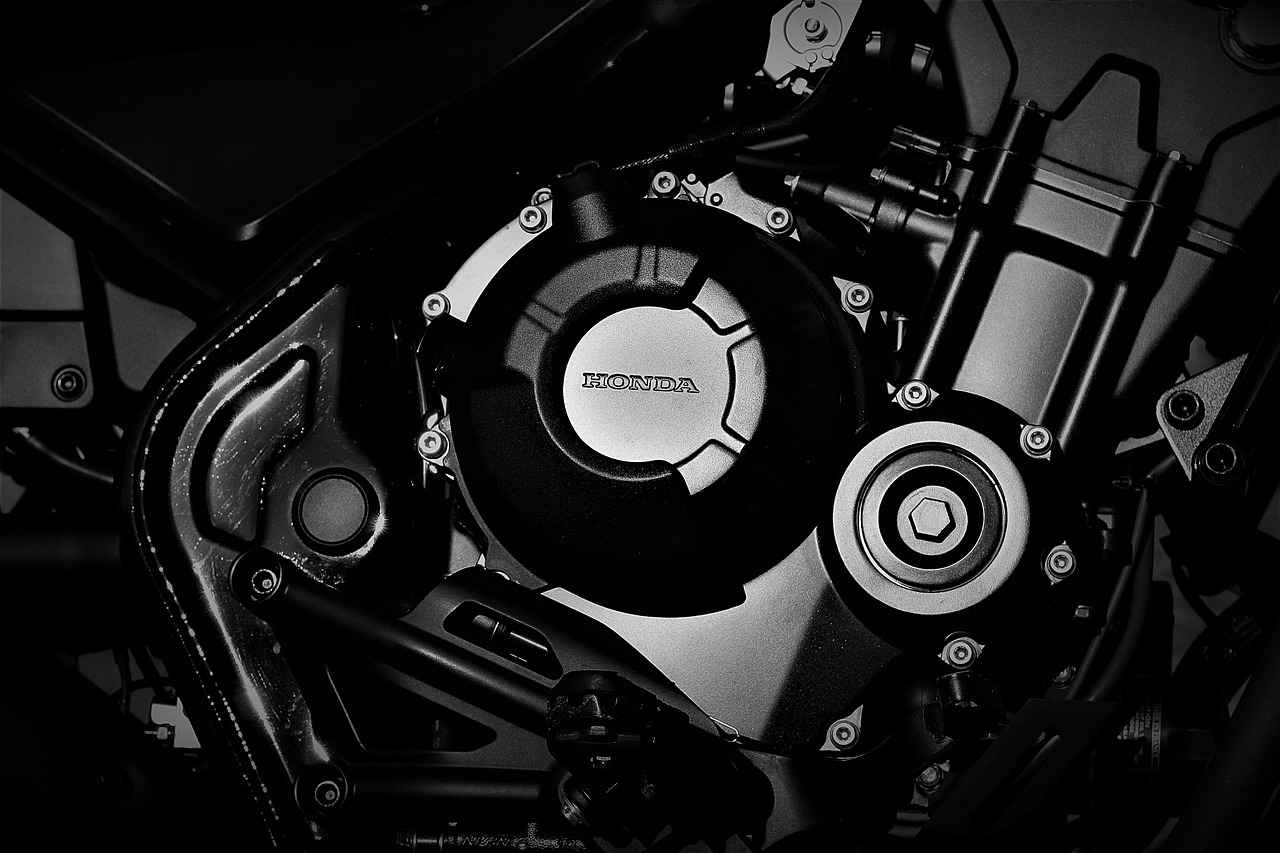
What Do Honda Owners Say About Using Premium Gas?
When it comes to fuel choices for your Honda Accord, owner experiences can provide valuable insights. Many Honda Accord drivers have shared their thoughts on using premium gasoline, and these testimonials can help potential buyers and current owners make informed decisions about their fuel options.
One common sentiment among Honda Accord owners is that while premium gas may not be necessary for optimal performance, some drivers report a noticeable difference in engine smoothness and responsiveness when using higher octane fuel. Many users have commented on how their vehicles seem to run more efficiently, particularly during long drives or under heavy acceleration.
In a recent survey, a significant number of Honda Accord owners indicated that they experienced improved fuel efficiency when using premium gas, although the savings did not always outweigh the higher cost of the fuel. For instance, one owner noted that while they initially switched to premium gas for a road trip, they found that the car performed better and provided better mileage than with regular gas. However, they also pointed out that the cost difference made it less appealing for everyday use.
- Performance Enhancements: Some drivers have reported enhanced performance, especially in models with turbocharged engines.
- Engine Cleanliness: A few owners mentioned that using premium gas seemed to keep their engines cleaner, potentially leading to fewer maintenance issues.
- Knocking Prevention: While most Honda Accord engines are designed to run on regular gas, some owners felt that using premium gas helped prevent knocking, especially in older models.
On the other hand, there are also owners who argue that using premium gas is unnecessary for the Honda Accord. Many have stated that they have not noticed any significant differences in performance or fuel economy when switching from regular to premium gas. One owner shared that they conducted their own tests by alternating between fuel types and found no discernible difference in their vehicle’s performance.
Additionally, the financial implications of using premium gas cannot be ignored. With fuel prices fluctuating, many drivers are conscious of their fuel expenditures. One owner remarked that while they enjoyed the driving experience with premium gas, they ultimately returned to regular gas to save money, especially considering that their Honda Accord was designed to operate efficiently on lower-octane fuel.
In conclusion, the experiences of Honda Accord owners regarding premium gas vary widely. While some drivers advocate for the benefits they perceive from using higher octane fuel, others find it unnecessary and not cost-effective. Ultimately, the decision to use premium gas should be based on individual driving habits, vehicle performance, and personal preferences. It’s always recommended to consult the owner’s manual and consider manufacturer recommendations when making fuel choices for your Honda Accord.

Manufacturer Recommendations for Fuel Types
When it comes to ensuring optimal performance and longevity of your Honda Accord, understanding the manufacturer’s fuel recommendations is essential. Honda has developed specific guidelines regarding fuel types and octane ratings that are tailored to enhance the driving experience while maintaining engine health.
Honda primarily recommends using regular unleaded gasoline for most Accord models. This fuel type typically has an octane rating of 87, which is suitable for the engine specifications of the majority of Accords. However, it’s important to note that some models, particularly those equipped with turbocharged engines, may benefit from higher octane fuel.
Octane ratings indicate a fuel’s ability to resist engine knocking or pinging during combustion. In simple terms, a higher octane rating means better resistance to knocking. For the Honda Accord, using fuel with an octane rating lower than what is recommended can lead to decreased performance and potential engine damage over time.
While most Honda Accords are designed to operate efficiently on regular unleaded gasoline, certain models, especially those with enhanced performance features, may recommend premium fuel. These models often come with turbocharged engines that require a higher octane rating to perform optimally. Always check the owner’s manual for specific fuel requirements based on your model year and trim.
Using premium gasoline in a Honda Accord that does not require it may not yield significant benefits. However, some drivers claim that they experience smoother acceleration and improved throttle response when using higher octane fuel. It’s crucial to weigh these perceived benefits against the increased cost of premium gasoline.
Using a fuel type that does not meet Honda’s recommendations can lead to various issues, including engine knocking, reduced fuel efficiency, and potential long-term damage. If you accidentally fill your Accord with lower octane fuel, it’s advisable to monitor the vehicle for any unusual sounds or performance issues and consult a technician if necessary.
Environmental factors, such as altitude and temperature, can influence fuel performance. At higher altitudes, for instance, the air is less dense, which can affect combustion. In such cases, using a higher octane fuel may help maintain performance levels. Honda’s recommendations take these factors into account, and drivers in varying climates should consider them when selecting fuel.
Many Honda Accord owners share their experiences regarding fuel types in online forums and reviews. While some report satisfaction with regular unleaded gasoline, others who have switched to premium fuel claim improved performance metrics. It’s beneficial to look into these testimonials but remember that personal experiences can vary widely.
In conclusion, adhering to Honda’s fuel recommendations is crucial for maintaining the performance and longevity of your Accord. While regular unleaded gasoline is sufficient for most models, it’s essential to consider your specific vehicle’s requirements and driving conditions. Always consult your owner’s manual for the most accurate and tailored advice regarding fuel types and octane ratings.

Can Using Premium Gas Improve Fuel Economy?
Many drivers wonder if premium gas can enhance fuel economy. This question is particularly relevant for those who own a Honda Accord, a vehicle known for its reliability and efficiency. In this section, we will investigate various studies and expert opinions to determine whether premium fuel leads to better mileage in Honda Accords.
Premium gasoline typically has a higher octane rating than regular gasoline, which means it is designed to resist knocking during combustion. This property can be beneficial for high-performance engines that operate at higher compression ratios. However, most Honda Accords are engineered to run efficiently on regular unleaded gasoline, which raises the question: Is it worth the extra cost to use premium gas?
According to a study conducted by the American Automobile Association (AAA), there is minimal evidence to suggest that using premium gasoline in vehicles designed for regular fuel results in significant improvements in fuel economy. The study analyzed various vehicles, including the Honda Accord, and found that the fuel economy gains from using premium gas were often negligible or non-existent.
| Fuel Type | Average MPG |
|---|---|
| Regular Gas | 30 MPG |
| Premium Gas | 31 MPG |
While the difference in miles per gallon (MPG) might seem appealing, the cost-benefit analysis reveals that the increased price of premium fuel often outweighs the minimal gains in fuel efficiency. For instance, if premium gas costs an average of 20 cents more per gallon, the savings from a slight increase in MPG may not be enough to justify the higher expenditure.
Some Honda Accord owners report feeling a difference in performance when using premium gas, claiming smoother acceleration and improved engine responsiveness. However, these experiences are subjective and can vary significantly based on driving habits and conditions. In fact, many experts argue that the perceived benefits of premium gas are more psychological than mechanical.
It’s also important to note that using premium gasoline in a Honda Accord that is designed for regular fuel does not harm the engine, but it may not provide any tangible benefits either. The vehicle’s engine management system is designed to optimize performance based on the fuel’s octane rating, which means it will adjust accordingly if lower octane fuel is used.
In conclusion, while some drivers may believe that using premium gas can enhance fuel economy and overall performance in their Honda Accord, research suggests that the benefits are often minimal. For most drivers, sticking with regular unleaded gasoline is the most cost-effective and practical choice. Always refer to your owner’s manual for specific fuel recommendations and consult with a trusted mechanic if you have further questions about fuel options for your vehicle.

When Should You Consider Switching to Premium Gas?
When it comes to fueling your Honda Accord, the choice between regular and premium gasoline can be a point of confusion. While most models are designed to run efficiently on regular unleaded fuel, there are specific scenarios where switching to premium gas might be beneficial. This section outlines those circumstances, helping you make an informed decision.
- High-Performance Driving: If you frequently engage in high-performance driving, such as accelerating rapidly or driving on steep inclines, premium gasoline can help your engine perform optimally. The higher octane rating in premium fuel can prevent knocking and ensure smoother operation under stress.
- Extreme Weather Conditions: In extremely hot or cold weather, your engine may benefit from premium gas. The higher octane can enhance ignition reliability, which is particularly helpful when starting your vehicle in cold temperatures or maintaining performance during heat waves.
- Towing or Heavy Loads: If you often tow trailers or carry heavy loads, using premium gas can provide additional power and efficiency. The enhanced combustion characteristics of premium fuel can help your engine manage the extra strain more effectively.
- Long-Distance Travel: For long trips, especially on highways, premium gasoline may improve fuel efficiency. Some drivers report that using premium gas leads to better mileage over extended distances, although this can vary by individual driving habits and conditions.
- Older Vehicles: If you own an older Honda Accord model that may have experienced wear and tear, premium gas could help restore some lost performance. The higher octane can assist in reducing engine knocking, which may become more pronounced in aging engines.
- Fuel System Cleanliness: Premium gasoline often contains more detergents and additives, which can help keep your fuel system clean. If you are concerned about carbon buildup and engine cleanliness, switching to premium fuel occasionally may provide benefits.
Ultimately, while premium gas is not a requirement for most Honda Accord models, there are specific driving conditions and performance needs that may justify its use. If you find yourself in any of the above scenarios, considering a switch to premium gasoline could enhance your driving experience and engine performance.
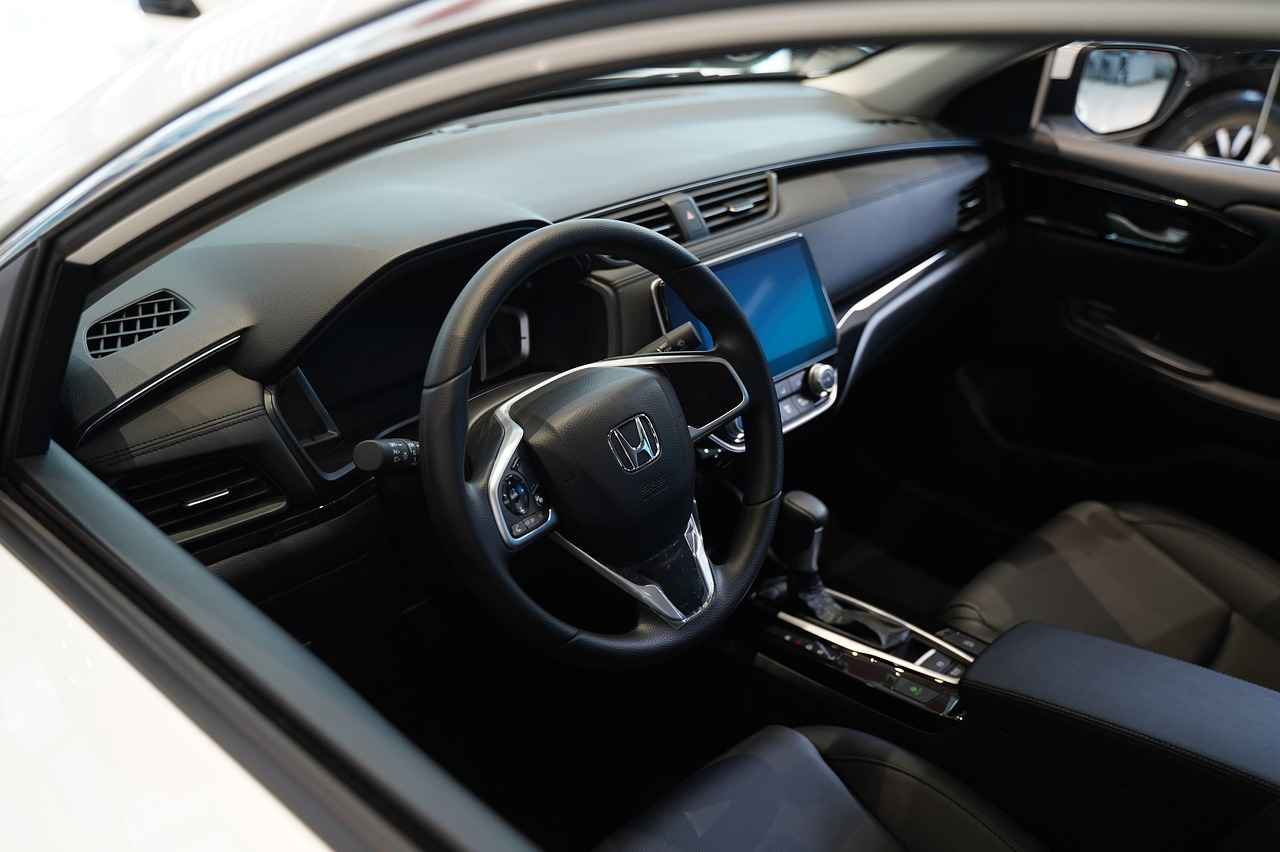
Final Thoughts on Fuel Choices for Honda Accord
When it comes to choosing the right fuel for your Honda Accord, many drivers find themselves asking, “Should I use regular or premium gasoline?” This decision can be confusing, especially with the varying opinions on fuel types and their impact on vehicle performance. In this section, we will summarize the key points to consider when deciding between regular and premium gasoline for your Honda Accord.
- Understand Your Vehicle’s Requirements: Most Honda Accords are engineered to run efficiently on regular unleaded gasoline. Check your owner’s manual for the manufacturer’s fuel recommendations specific to your model and trim.
- Octane Ratings Matter: Premium gasoline has a higher octane rating, which can prevent engine knocking in high-performance vehicles. However, for the average Honda Accord, this may not be necessary.
- Performance Considerations: Some drivers report smoother performance and slightly improved fuel efficiency when using premium gas. It’s essential to weigh these potential benefits against the increased cost of premium fuel.
- Financial Implications: Premium gasoline is typically more expensive than regular gas. If your Accord does not require premium fuel, consider whether the potential benefits justify the extra expense.
- Driving Conditions: If you frequently drive in demanding conditions, such as towing or mountainous terrain, premium gas may help maintain engine performance. However, for everyday driving, regular gas is usually sufficient.
- Owner Experiences: Many Honda Accord owners have shared their experiences regarding fuel types. Some have noticed no significant difference in performance or fuel economy when switching to premium gas.
- Manufacturer Recommendations: Honda’s guidelines are clear: regular unleaded gasoline is generally the best choice for most Accord models. Following these recommendations can help ensure optimal performance and longevity of your vehicle.
In summary, choosing the right fuel for your Honda Accord involves understanding your vehicle’s specific needs and weighing the pros and cons of premium versus regular gasoline. While premium fuel may offer some benefits, for most drivers, sticking with regular unleaded gasoline is the most cost-effective and efficient choice. Always refer to your owner’s manual and consider your driving habits before making a decision.
Frequently Asked Questions
- Can I use premium gas in my Honda Accord?
Yes, you can use premium gas in your Honda Accord, but it’s not necessary. Most models are designed to run efficiently on regular unleaded gasoline, so you might not see any significant benefits from using premium fuel.
- What are the benefits of using premium gas?
Some drivers believe that using premium gas can lead to improved engine performance and fuel efficiency. However, for Honda Accords designed for regular gas, these benefits may be minimal or non-existent.
- Will using premium gas harm my Honda Accord?
No, using premium gas will not harm your Honda Accord. The engine can handle it, but you may end up spending more without seeing any real advantages.
- How does octane rating affect my vehicle?
Octane rating indicates a fuel’s ability to resist knocking in high-compression engines. While higher octane fuels like premium can benefit certain high-performance vehicles, Honda Accords typically do not require it.
- When should I consider switching to premium gas?
If you frequently drive in extreme conditions, such as high temperatures or heavy loads, you might consider premium gas. However, it’s best to check your owner’s manual for specific recommendations.














